
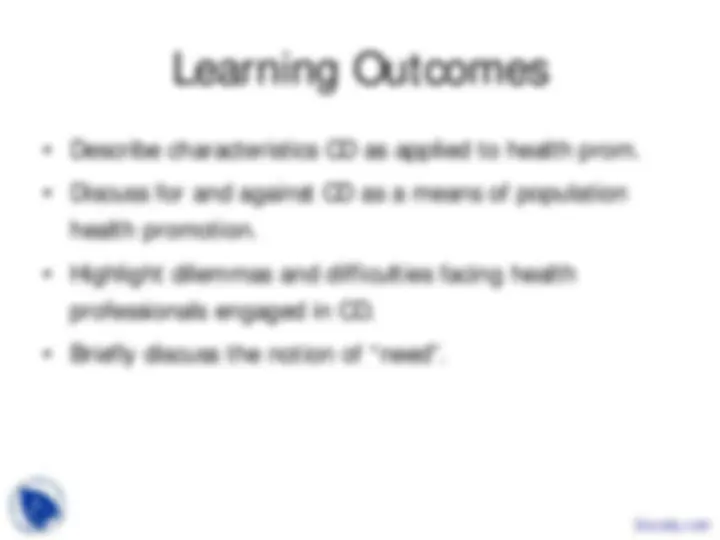


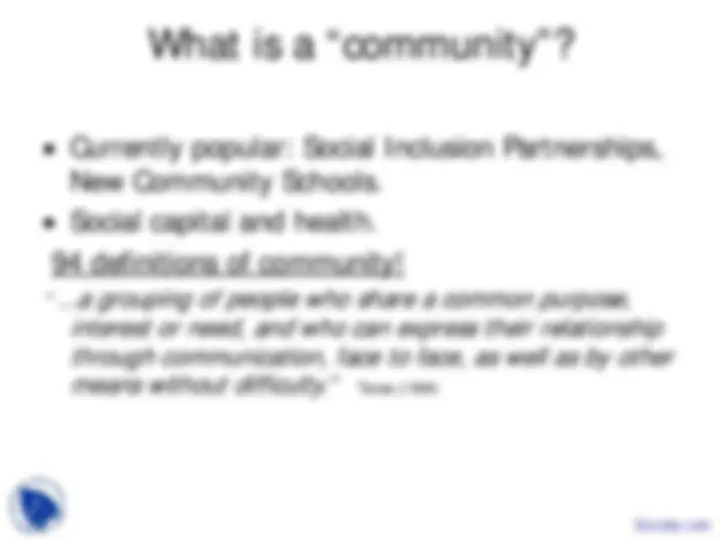
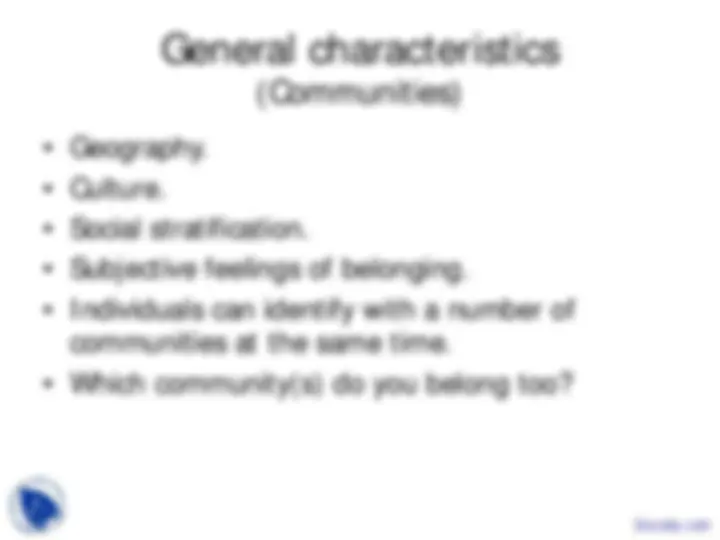
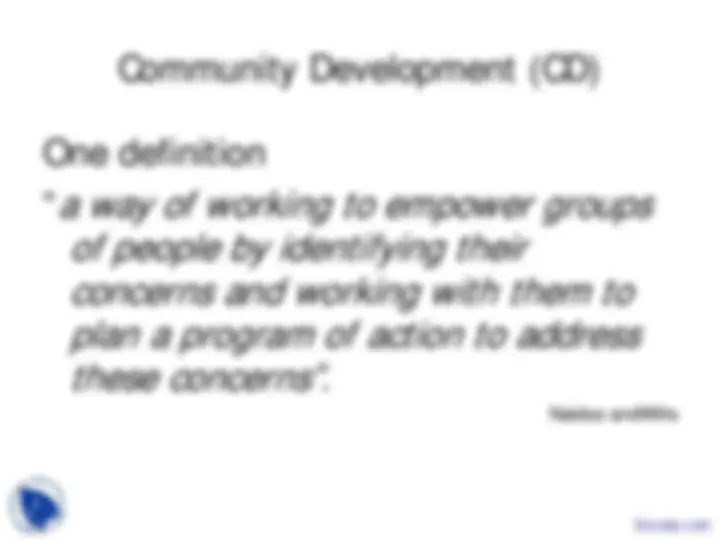
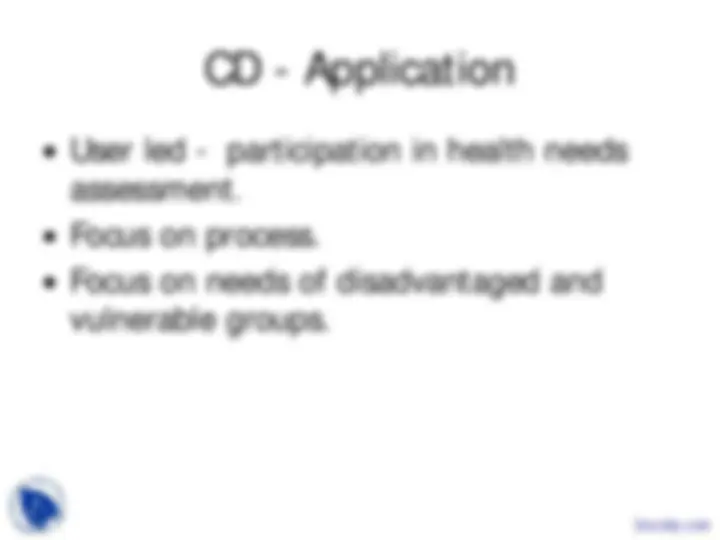
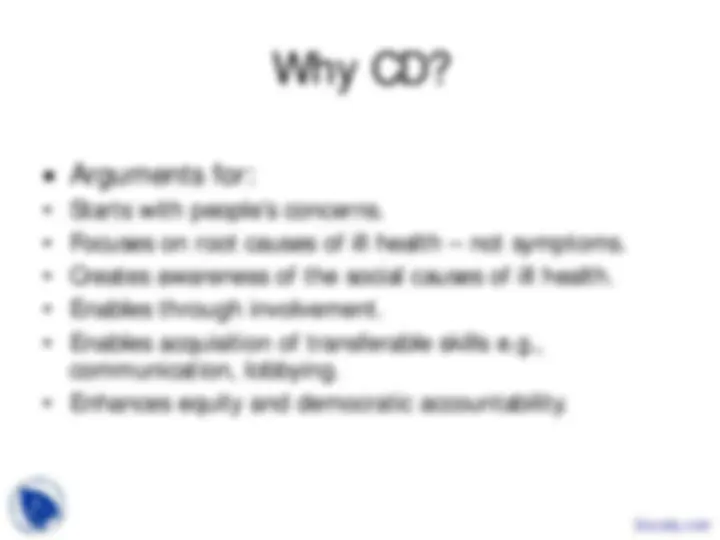
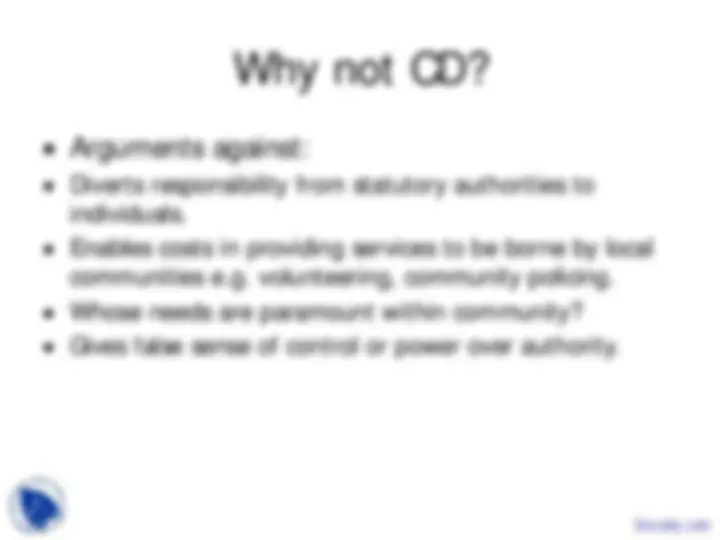

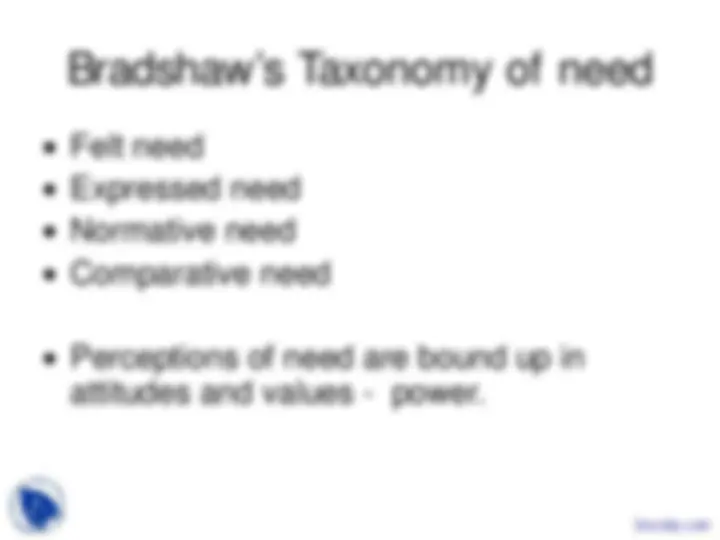
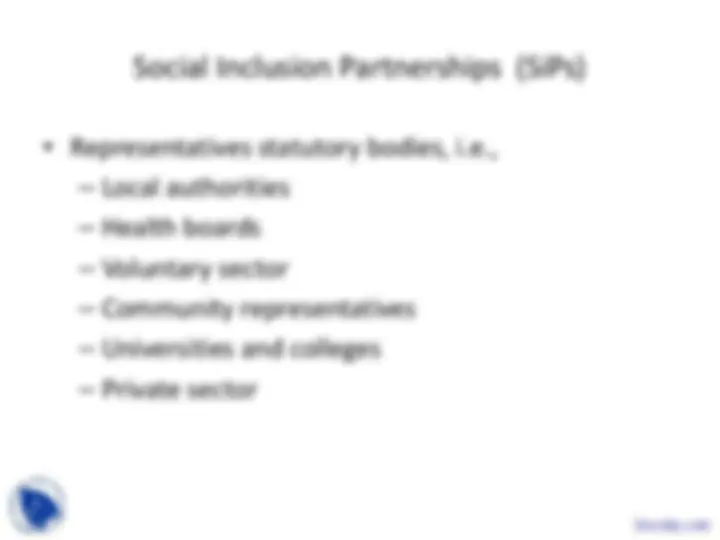
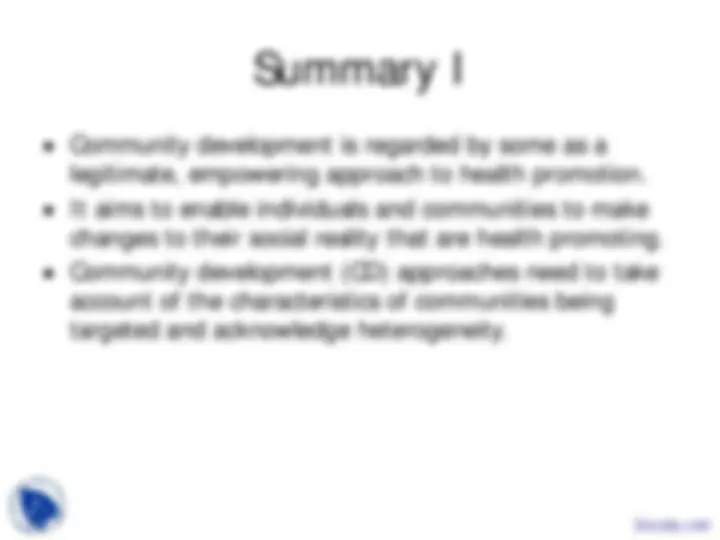



Study with the several resources on Docsity

Earn points by helping other students or get them with a premium plan


Prepare for your exams
Study with the several resources on Docsity

Earn points to download
Earn points by helping other students or get them with a premium plan
Community
Ask the community for help and clear up your study doubts
Discover the best universities in your country according to Docsity users
Free resources
Download our free guides on studying techniques, anxiety management strategies, and thesis advice from Docsity tutors
In community development the main concept that we study are Role of Women, Challenges and Opportunities,Social Change Agents, Projects, Tibetan Plateau. In these slides the main points are:Learning Outcomes, Community Empowerment, Notion, Highlight Dilemmas, Professionals Engaged, Means of Population, Describe Characteristics, Ottawa Charter, Developing Public Policy, Developing Personal Skills
Typology: Slides
1 / 22

This page cannot be seen from the preview
Don't miss anything!















“Health promotion works through concrete and effective community action in setting priorities, making decisions, planning strategies and implementing them to achieve better health. At the heart of this process is the empowerment of communities, their ownership and control over their own endeavours and destinies”.
94 definitions of community! “ …a grouping of people who share a common purpose, interest or need, and who can express their relationship through communication, face to face, as well as by other means without difficulty.” Tones (1994)
“a way of working to empower groups
of people by identifying their concerns and working with them to plan a program of action to address these concerns”. Naidoo andWills
Social Inclusion Partnerships (SiPs)